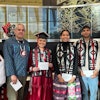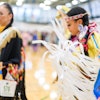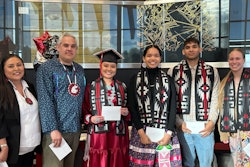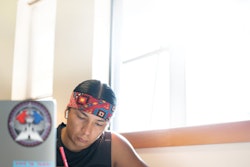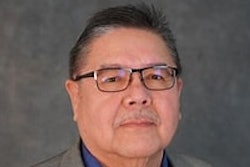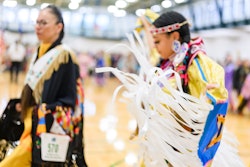Building mutually beneficial knowledge alliances and driving positive impact for Native American communities are at the core of Dr. Tarissa Spoonhunter’s work in academia.
When she was in graduate school, Spoonhunter, who grew up on the Blackfeet Indian Reservation in Montana, where her family are ranchers, spoke at a think tank held at Harvard University around conservation. She shared a story her aunt told her about how before the tribe starts a ceremony they call on all the elements of the Earth. The last ones to enter the lodge are the humans.
“I told them, ‘If you let the elders tell you a story, you would see how everything is connected,’” Spoonhunter says. “As Blackfeet people, we say the sharing of knowledge never ends.
“I don’t care if my research benefi ts me. I’d rather see it benefit the tribe rather than build my own résumé.”
Spoonhunter’s family was something of an anomaly on the reservation in that everyone pursued higher education. Both parents earned bachelor’s degrees in education and later master’s degrees, even as they held on to the traditional way of life.
“When I went to college, I already had in my mind that whatever I did, I wanted it to help my people,” Spoonhunter says. “Every paper I wrote basically was about the Blackfeet people or about Indians in general.”
She earned a master’s degree at the University of Arizona so that she had sufficient credentials to teach at Blackfeet Community College on the reservation. After she had taught there for several years, family members encouraged her to pursue a doctorate, and she returned to Arizona.
